Our Fire Planet
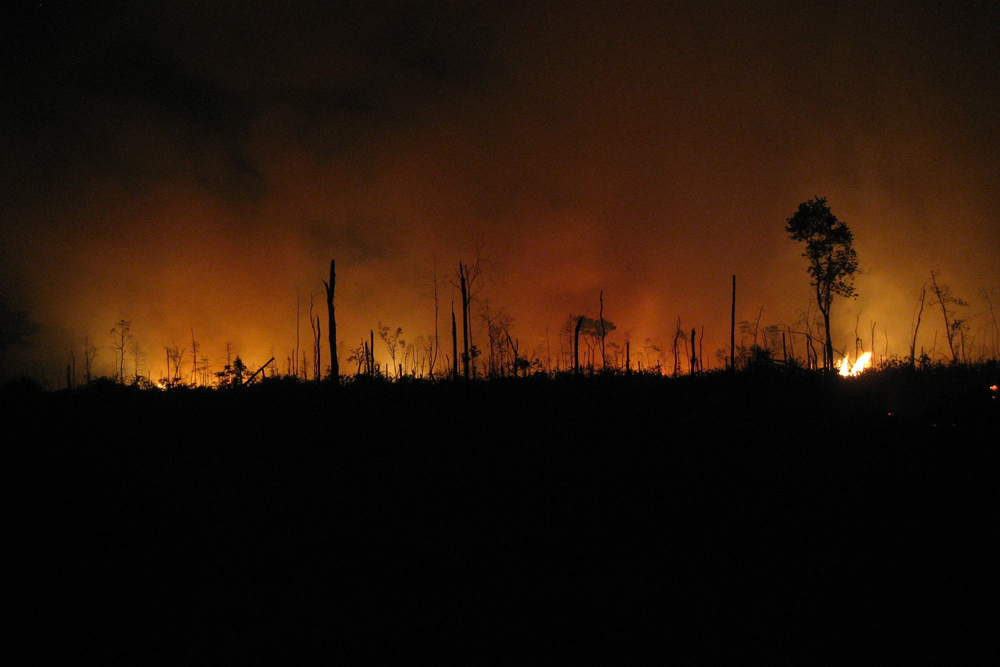
From Jennifer Balch, a fire ecology researcher and assistant professor at Penn State’s Department of Geography:
We need to reassess the role of fire on Earth. My research aims to understand the patterns and processes that underlie disturbance and ecosystem recovery, particularly how shifting fire regimes are reconfiguring tropical forests, encouraging non-native grass invasion, and affecting the global climate.
My current and future research addresses the following major unsolved questions: What is fire’s role in the Earth system? More specifically, how does fire contribute to global trends of climate warming and how does climate warming promote fire? A second question I am looking into is how fire regimes are altered by invasive species.
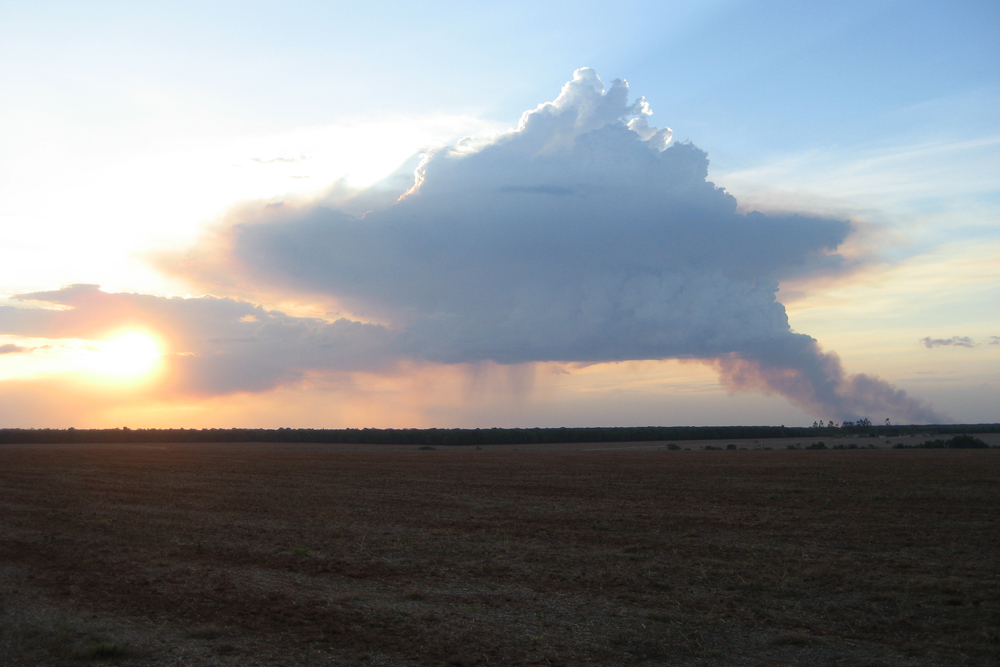
Particularly, how is an invasive grass-fire cycle established and perpetuated? I am also researching how the recent unprecedented increase in human-initiated fires is altering tropical-forest dynamics, and how this increase in fire frequency is changing carbon cycles and the recovery trajectories.
In addressing these questions, my research aims to explore global patterns of anthropogenic climate and land cover disruptions to help inform people about opportunities to curb and adapt to these changes.
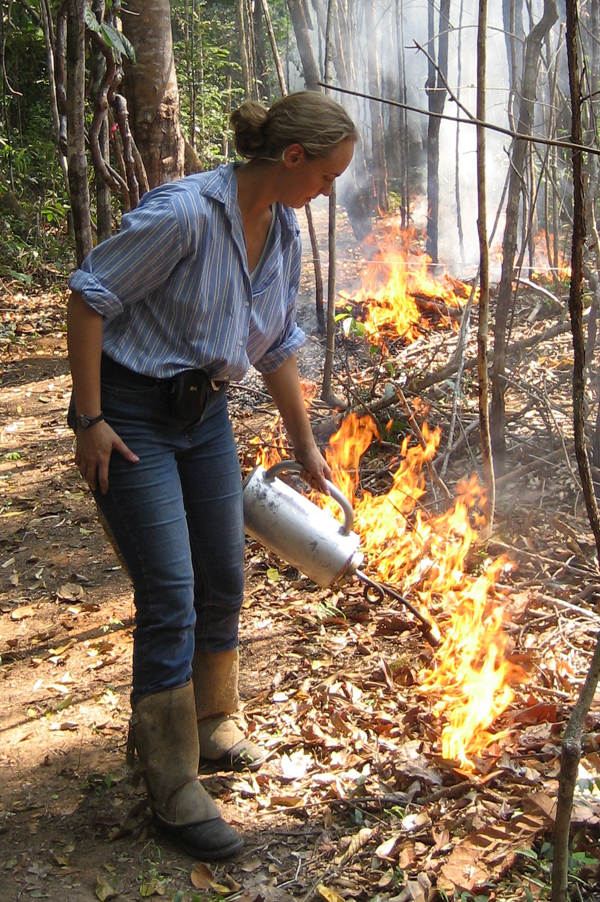
Name: Jennifer K. Balch Age: 35 Institution: The Pennsylvania State University Field of Study: Fire Ecology
LiveScience.com: What inspired you to choose this field of study?
Sign up for the Live Science daily newsletter now
Get the world’s most fascinating discoveries delivered straight to your inbox.
I think it is part of human nature to be attracted to and disturbed by fire. I first began thinking about the fire cycle and people’s relationship with fire while on a Fulbright grant in Venezuela. I had the opportunity to work with a researcher who was looking at the Pemon indigenous peoples’ fire management strategies in the Gran Sabana (an incredible landscape of savannas and forests with tabletop mountains that were featured in the movie “Up”).
I distinctly remember seeing a little boy playing with fire by the side of the road. He was delicately sprinkling sparks from a burning stick every few feet, and I remember thinking, “Wow, where’s your mother, hasn’t she told you not to play with fire?” And then it dawned on me what a complex and intriguing relationship we humans have with fire. Here was this little boy implementing a dispersed and brilliant fire management strategy that has been honed over countless generations — which was to burn often and in a dispersed way to maintain a mosaic of burned and unburned patches. The effect is to create a series of firebreaks by reducing fuel availability and limiting the potential fire intensity. It really got me thinking.
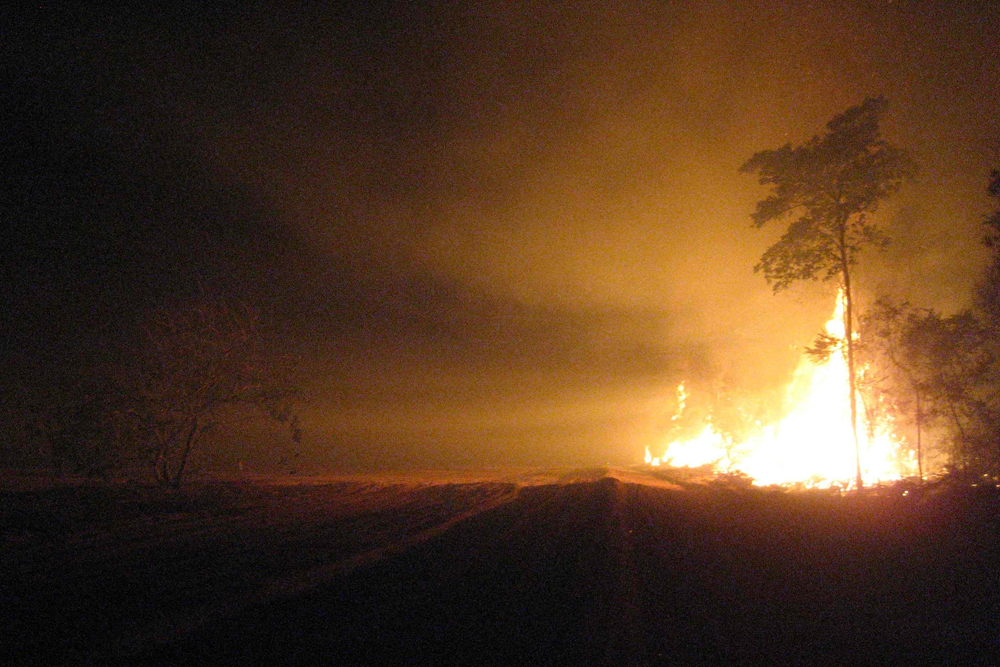
LiveScience.com: What is the best piece of advice you ever received?
“You can be anything you want to be, but you ain’t gonna be nothin’ unless you get yourself an education.” – My grandmother.
LiveScience.com: What was your first scientific experiment as a child?
When I was a kid, I wanted to test if people’s eye color changed depending on the day. So I took all these photographs of my friends in the same spot in the classroom day after day. Turns out they were taken against a sunny window and were consequently all backlit, so I couldn’t see my friends’ faces even. The lesson being that you should make sure your equipment and experimental design are sound. The hypothesis remains untested.
LiveScience.com: What is your favorite thing about being a researcher?
One of my favorite things is when those moments of lucidity come, when the complexity of the natural world begins to unravel itself and you see one small seed of truth. Research and conducting the scientific method in a robust way requires a lot of work, but when you do get there it is reassuring that one seed of knowledge can move us forward.
LiveScience.com: What is the most important characteristic a researcher must demonstrate in order to be an effective researcher?
Persistence, persistence, and more persistence.
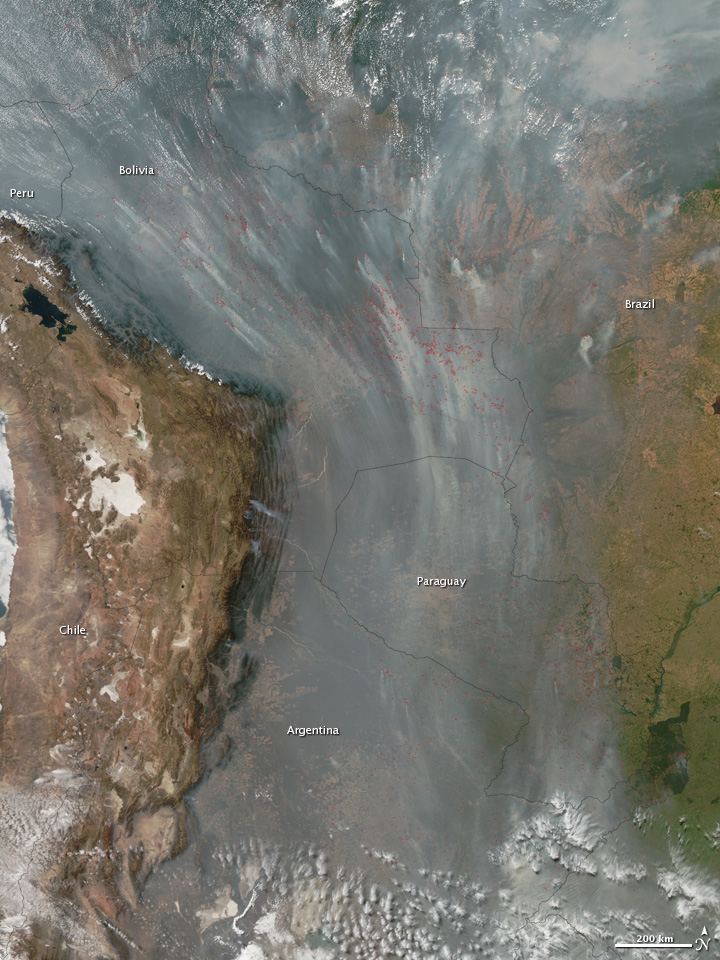
LiveScience.com: What are the societal benefits of your research?
Better understanding of fire will help us adapt to changing fire regimes, particularly where there are bigger fires, more frequent fires, or fires in places where we don’t normally see fires. We need to shift from thinking of fire as a disaster phenomena to thinking about what are the sustainable fire regimes that we can tolerate and live with against the backdrop of changing climate.
LiveScience.com: Who has had the most influence on your thinking as a researcher?
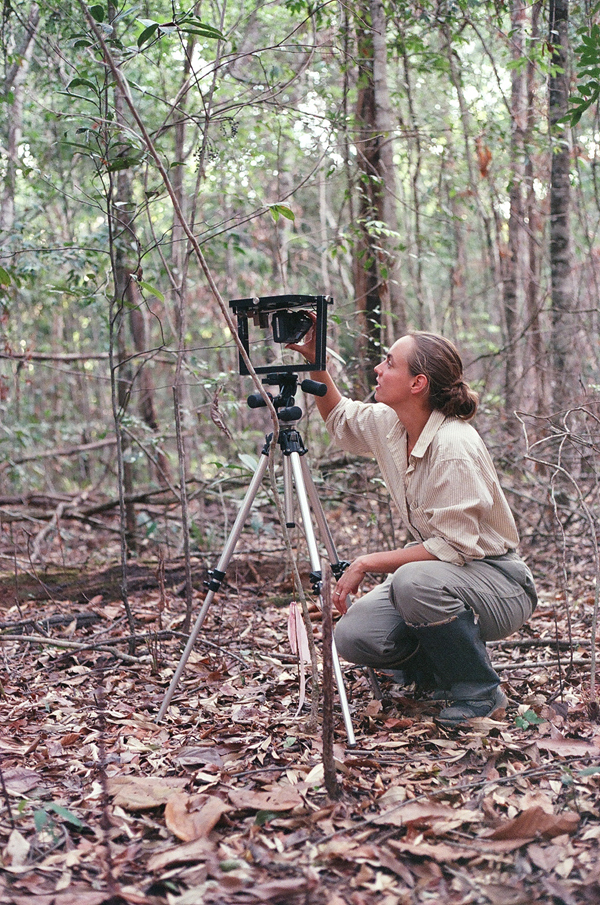
There are too many to name…I feel that I sit on the shoulders of giants.
LiveScience.com: What about being a researcher do you think would surprise people the most?
It takes an incredible amount of creative energy, there is an art to science.
LiveScience.com: If you could only rescue one thing from your burning office or lab, what would it be?
Well, wouldn’t that be ironic. I probably wouldn’t rescue anything. The lesson from fire ecology is that there is always some sort of renewal and rebirth after a fire.
LiveScience.com: What music do you play most often in your lab or car?
A little Ani DiFranco and Lady Gaga. And sometimes, if I need some real inspiration, I play “Firework” by Katy Perry.
Learn more:
Fire Is an Important and Under-Appreciated Part of Global Climate Change
Scorched Earth: The Past, Present and Future of Human Influences on Wildfires
Editor's Note: The researchers depicted in ScienceLives articles have been supported by the National Science Foundation, the federal agency charged with funding basic research and education across all fields of science and engineering. Any opinions, findings, and conclusions or recommendations expressed in this material are those of the author and do not necessarily reflect the views of the National Science Foundation. See the ScienceLives archive.










